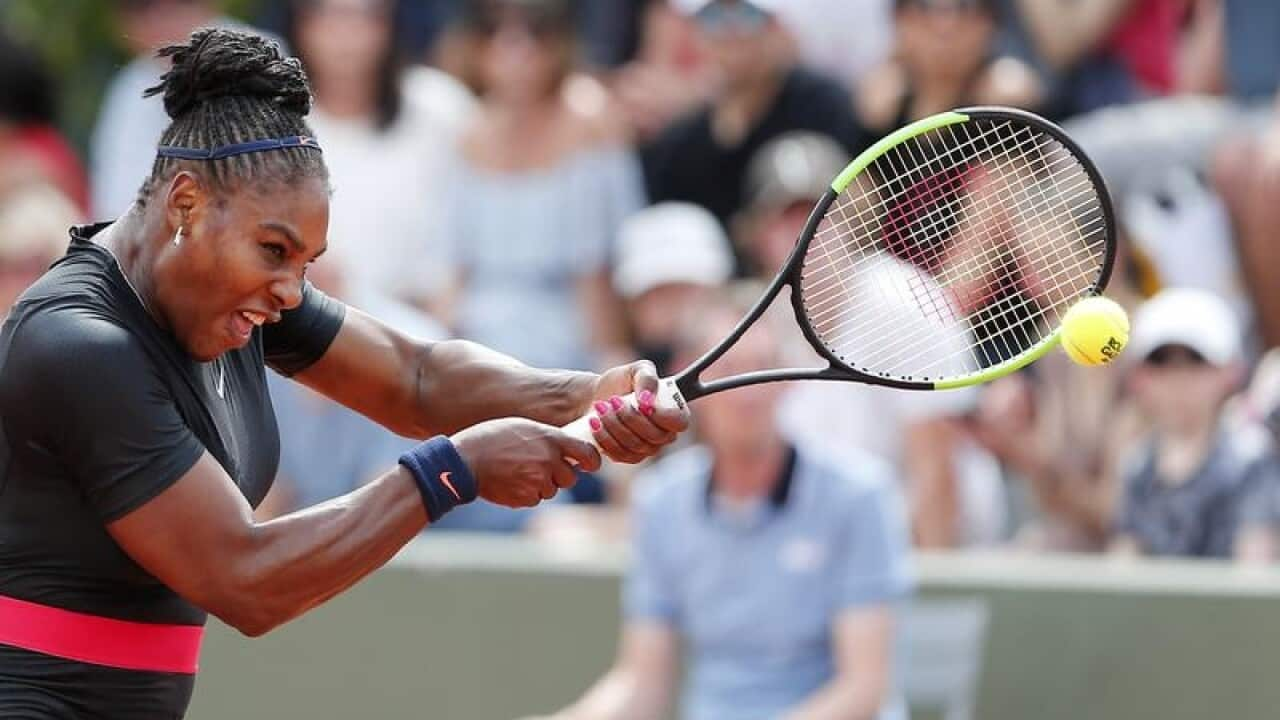OPINION
Serena Williams has graced the cover of Time Magazine in a powerful portrait with a scarred post-baby belly and the headline "Nothing about me right now is perfect. But I'm perfectly Serena."
In the , the tennis champion has opened up about the challenges of coming back to tennis after giving birth, rising above racism, and dealing with finding out her sister's killer had been released from prison.
Williams has also been refreshingly vocal in talking about post-partum depression and recovering after life-threatening complications following the birth of her daughter Olympia in September with tech boss Alexis Ohanian.
With an honesty that comes from sitting comfortably at the top, Williams is frank about the challenges of rising up the ranks of a predominantly white sport as a child from working class Compton in California, as well as dealing with personal tragedy. Her sister Yetunda Price was shot dead in a drive-by shooting in 2003.
Moments before her shock loss in the Silicon Valley classic earlier this month, Williams said she scrolled through Instagram to find out her sister's killer has been released on parole: “I couldn’t shake it out of my mind.”
As Williams chases her 24th Grand Slam, tieing with Margaret Court's record (disputed as a comparison point, as calculated during the older Open era) - the athlete has been slow to gain the respect for being the greatest female tennis athlete ever to dominate the game, and less openly celebrated than her male counterparts, like Roger Federer.
She's faced snide remarks about her body - and by implication her blackness and even accusations of steroid use, despite never having tested positive for any banned substances.
“They sure don’t throw a dart at other people, huh? I’m a black woman,” she says. “Women in general are not treated the same as men who’ve had the same amount of success. And then, being a black woman, doing something historically that’s never been done, it’s easy to feel like, ‘We’ve always picked on people of this colour. So I’m O.K. to continue to do it.'”
Williams concedes her millions of fans are a good antidote to the haters.
Williams became a icon for working mums after reaching the Wimbledon finals, and is now aiming to break the world record in the US Open. She opens up about the realities of training as a new mother and being advised by her coach to stop breastfeeding to get in form.
"It’s absolutely hard to take from a guy,” she says. “He’s not a woman, he doesn’t understand that connection, that the best time of the day for me was when I tried to feed her. I’ve spent my whole life making everyone happy, just servicing it seems like everyone. And this is something I wanted to do.”
For Williams there is no question of stopping.
“I’m not done yet, simple...My story doesn’t end here,” she said.




